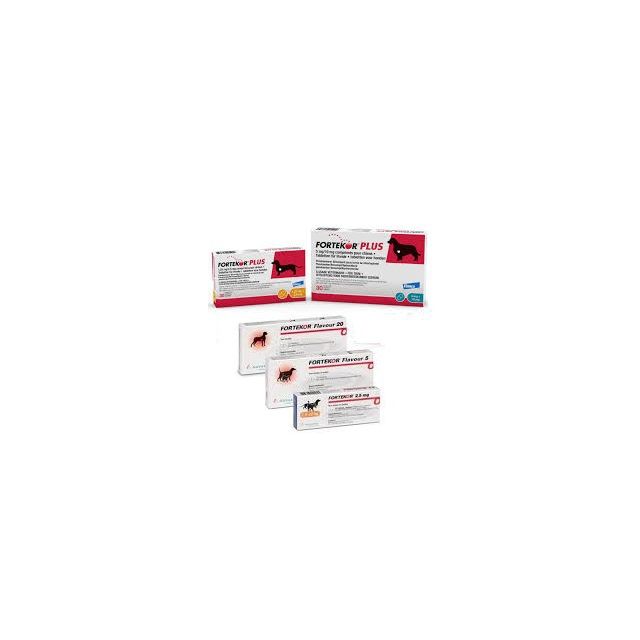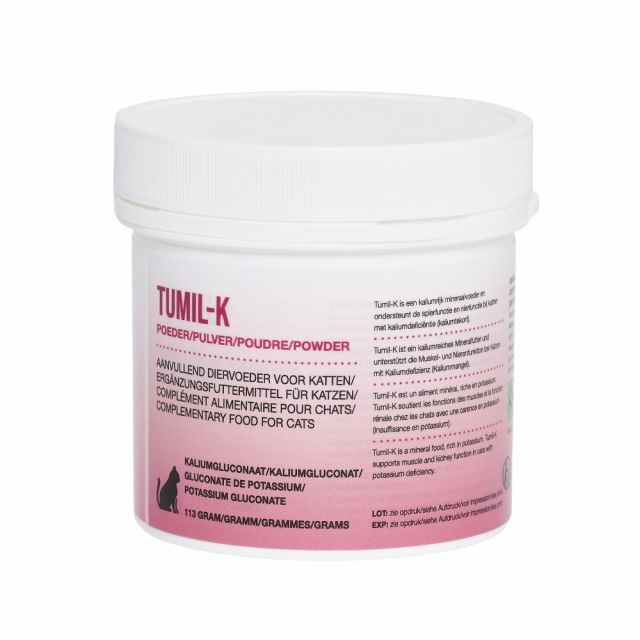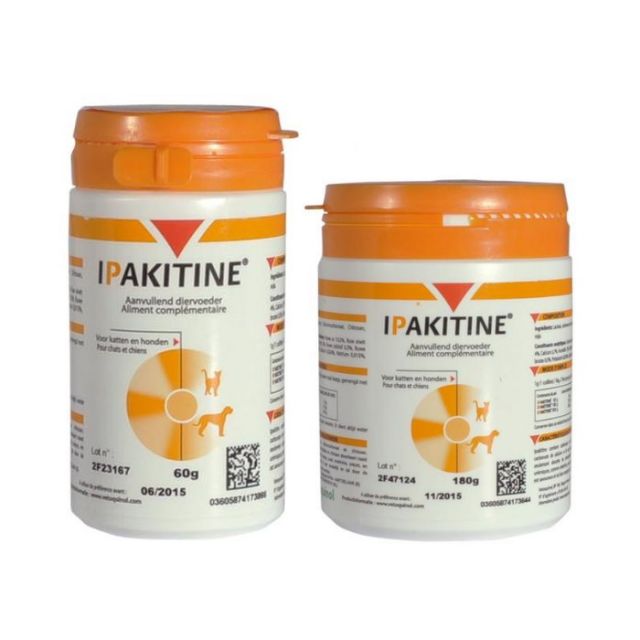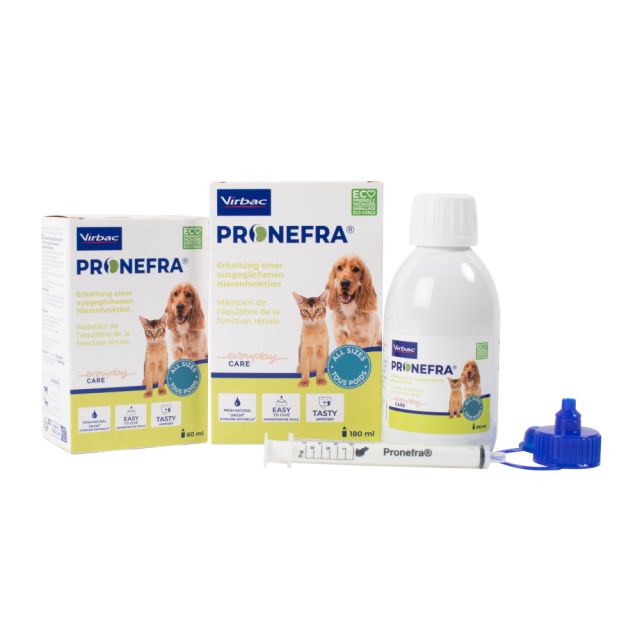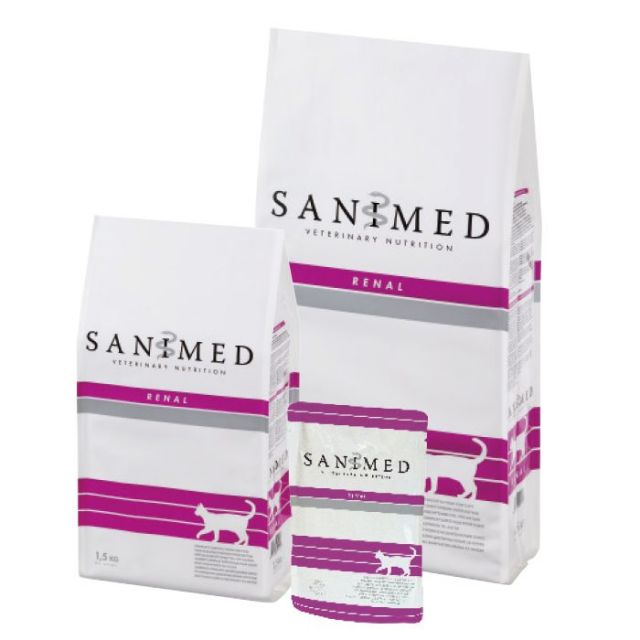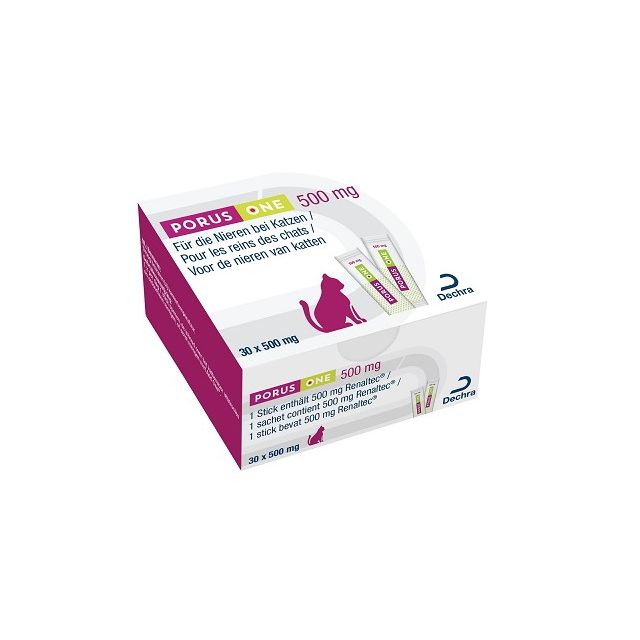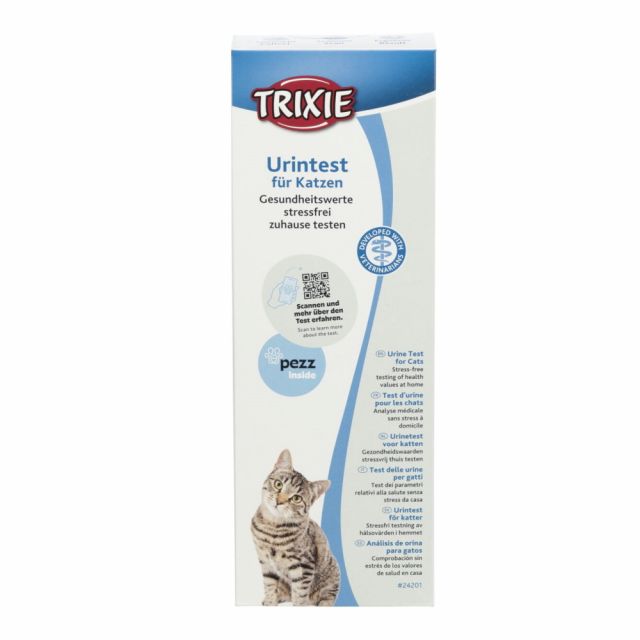Fortekor
Fortekor is suitable for use in dogs and cats. Fortekor Plus is for use in dogs only. This medication is used in dogs to treat heart conditions (congestive heart failure). In cats, it is used to reduce the presence of protein in the urine associated with chronic kidney disease. Fortekor is tasty and is willingly eaten by most dogs and cats.
Fortekor is available in tablets of 2.5 mg (dog and cat), 5 mg (dog and cat), and 20 mg (dog). Fortekor Plus is available in tablets of 1.25/2.5 mg and 5/10 mg.
The effect of Fortekor and Fortekor Plus in dogs
Fortekor contains the ACE inhibitor Benazepril hydrochloride. ACE inhibitors prevent the kidneys from unnecessarily retaining fluid and relax the blood vessels. The medication reduces blood pressure and the volume load on the heart in dogs with congestive heart failure.
Fortekor Plus contains, in addition to an ACE inhibitor, pimobendan. Pimobendan gives the heart muscle more strength and allows the blood vessels to relax, improving the heart's 'output'. Fortekor Plus is prescribed for dogs with a leaking heart valve (mitral insufficiency) and a specific form of heart muscle disease, dilated cardiomyopathy (DCM).
The effect of Fortekor in cats
In cats, Fortekor normalizes the increased pressure in the kidneys and lowers blood pressure. Protein excretion in the urine decreases with the use of Fortekor. No effect has been observed on the survival time of cats with chronic kidney disease, but the use of Fortekor improved the appetite of the cats, particularly in more advanced cases.
The dosage of Fortekor and Fortekor Plus
Fortekor is administered once daily, with or without food.
The dosage of Fortekor for dogs is 0.25-0.5 mg/kg body weight, once daily. The dose can be doubled if clinically necessary and advised by the veterinarian.
For cats, the dosage is 0.5-1.0 mg/kg body weight, once daily, which corresponds to 1 tablet of 2.5 mg per day for cats weighing 2.5-5 kg and 1 tablet of 5 mg once a day for cats weighing 5 to 10 kg.
Fortekor Plus is a fixed combination veterinary medicine that should only be used in dogs for which both active ingredients need to be administered simultaneously in this fixed dosage. The recommended dosage range for Fortekor Plus is 0.25-0.5 mg pimobendan per kg body weight and 0.5-1 mg Benazepril hydrochloride per kg body weight, divided into two daily doses approximately 1 hour before feeding.
Other medication for heart failure in dogs
If your dog has been diagnosed with heart failure, the veterinarian will likely prescribe other medication as well. There are several groups of medications that can be combined with Fortekor or Fortekor Plus.
Medications that improve heart muscle contraction
As mentioned earlier, the active substance pimobendan helps to improve the contraction of the heart valve in dogs with mitral insufficiency and DCM. Pimobendan is found in Fortekor Plus, combined with an ACE inhibitor. Additionally, pimobendan is the active ingredient in Cardisure, Pimotab, and Vetmedin.
Diuretics
In congestive heart failure, ascites (fluid in the abdominal cavity) or edema (fluid in the lungs or under the skin) can develop, which can lead to severe breathlessness and coughing. Furosemide (Libeo and Furosoral) and torasemide (Isemid and Upcard) help eliminate excess fluid from the abdomen, chest cavity, lungs, or other areas through the urine. These tablets are commonly referred to as 'water pills'. The loss of extra fluid through the urine reduces the 'filling' of the vascular system. As a result, blood pressure decreases and the heart is relieved because it does not have to pump as much blood.
Other medication for chronic kidney disease in cats
If your cat is taking Fortekor for chronic kidney disease, it may also benefit from the following medications, supplements, or prescription diets.
Prescription Diets
The main pillar in the management of chronic kidney disease is special prescription diets, such as Sanimed Renal. This diet ensures that the kidneys are minimally stressed by a controlled amount of easily digestible proteins (the waste product of proteins, urea, is not properly eliminated by diseased kidneys and accumulates in the blood), a strongly reduced phosphate and salt content, a controlled potassium level, and high levels of anti-inflammatory fatty acids and antioxidants. The food is also highly palatable and provides a high energy content.
Supplements for chronic kidney disease
Sometimes, a prescription diet alone is not enough to sufficiently reduce phosphate levels and uremic toxins (waste products that are normally eliminated by the kidneys but now make your cat nauseous) in the blood. In this case, a supplement that binds these substances, such as Ipakitine, Porus One, or Pronefra, can be added to the food. Kidney patients may lose potassium through the kidneys, lowering their blood potassium levels. A recognizable symptom of low potassium levels is muscle weakness, often seen as the head and neck being held low. Tumil-K, a supplement with extra potassium, can help correct this deficiency.
Other treatments for chronic kidney disease
Because cats with chronic kidney disease cannot concentrate their urine properly, they need to drink a lot of water. Always ensure that fresh water is available and intervene if your cat is not eating or drinking well. Cats with chronic kidney disease deteriorate very quickly if they are not eating and/or drinking enough!
For protein loss through the urine, Semintra 4 mg/ml is often recommended. Cats with chronic kidney disease often have high blood pressure. It may be that this increased blood pressure does not decrease enough with the use of Fortekor or Semintra 4 mg/ml, and additional blood pressure-lowering medication such as Semintra 10 mg/ml or Amodip may be needed. These medications are only available by prescription from your veterinarian and their use should be monitored regularly with blood pressure checks.
Package Insert
Read the Fortekor package insert or the Fortekor Plus package insert before use.
If you have any questions about Fortekor or Fortekor Plus, please contact us.

